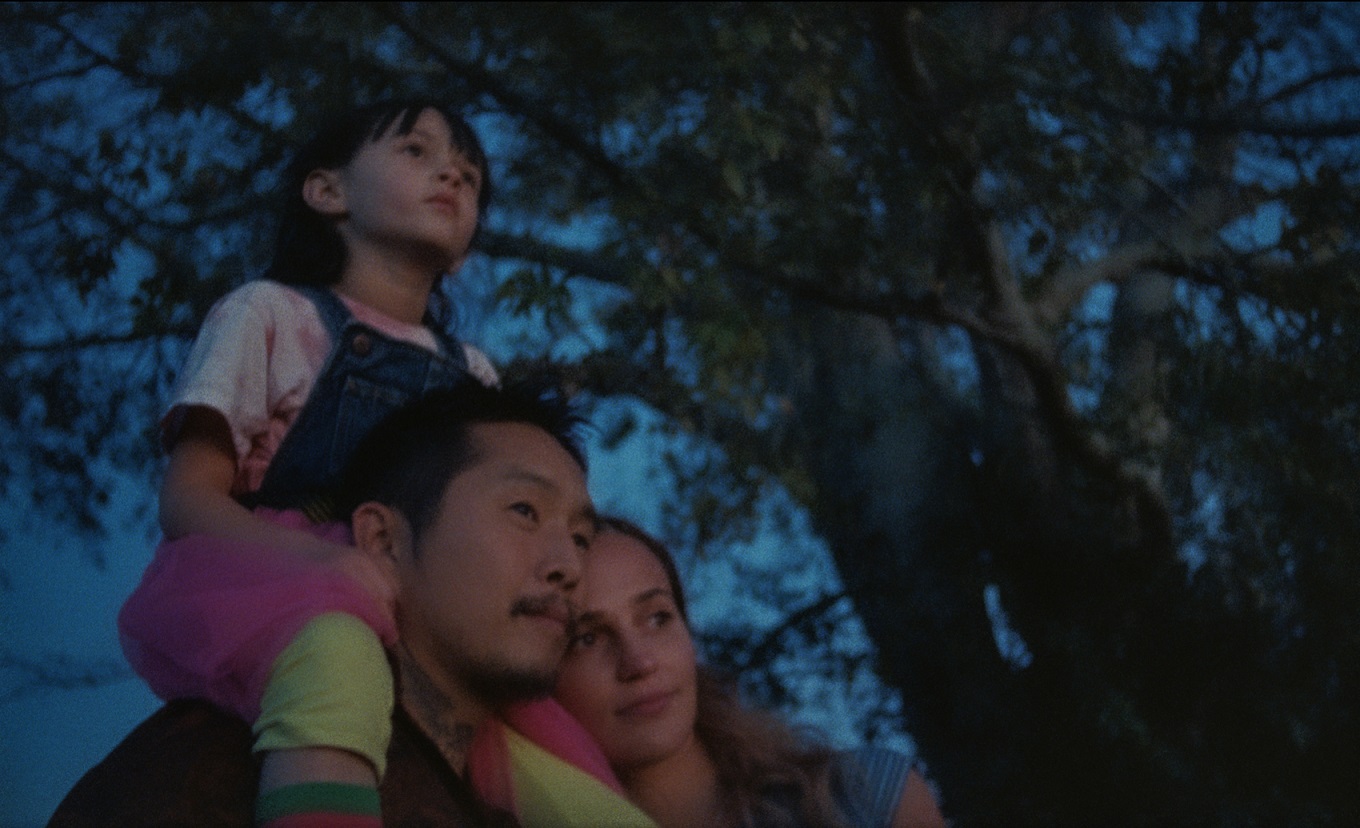
Blue Bayou
Focus Features
Reviewed for Shockya.com by Abe Friedtanzer
Director: Justin Chon
Writer: Justin Chon
Cast: Justin Chon, Alicia Vikander, Mark O’Brien, Linh Dan Pham, Emory Cohen
Screened at: Critics’ link, NY, 9/19/21
Opens: September 17th, 2021
Family separation is an incredibly heartbreaking notion, and unfortunately it’s one that happens all too often. In some cases, a parent, sibling, or child may go ahead of the rest of their relatives to a promising future that could ultimately deliver but requires the building of considerable capital before it can truly begin. In others, there is no choice made and people must grapple with impossible circumstances far beyond their control. Blue Bayou spotlights a story that, to many, is purely inconceivable, and to others, all too real.
Antonio LeBlanc (Justin Chon) enjoys a very close relationship with his stepdaughter Jessie (Sydney Kowalske). His wife, Kathy (Alicia Vikander), is pregnant with their child, and Antonio is struggling to pick up extra shifts at the tattoo parlor where he works and to find a second job, which proves difficult due to a criminal history, to afford the extra costs associated with a new baby. When Jessie’s father Ace (Mark O’Brien), a local police officer, clashes with Antonio, he finds himself facing a jarring fate he would never have imagined: deportation due to his having been adopted from Korea decades earlier as a child.
This film is dedicated to the many adoptees who were placed in similar situations, ordered to be removed from the only country they can remember after spending almost the whole of their lives within it. The way in which Antonio ends up being set for deportation is also absurd and unfair, as Ace’s vindictive partner Denny (Emory Cohen) uses his status as an officer to the law to exact vengeance on Antonio for what he sees as disrespect for authority, even bragging to Ace that he has taken care of the problem for him. While he can’t possibly comprehend what his petty abuse of power will do to rip apart a family, he also seems gleefully aware of the damage he can cause with minimal effort.
This story is both universal and individual, representative of the many families who find themselves, through no fault of their own, in heartbreaking scenarios that they are powerless to escape. But what Chon, who also serves as writer and director, is able to do is to create authentic characters who feel unique and worthwhile outside of this chapter of their lives. The bond between Antonio and Jessie is intensely warm and close, and that relationship speaks incredibly loudly about the negative effect Antonio’s deportation will have on this young child.
However sympathetic Antonio may be, he’s not flawless, and this film doesn’t suggest otherwise. He is a caring and devoted husband and stepfather, though he really should better be regarded simply as a father due to the way he interacts with Jessie. But he also has legitimate criminal convictions that only serve to reinforce the assumptions prospective employers or police make about him when they see his tattoo-covered body. Try as he may, he often gives in to base impulses and allows his temper to get the best of him.
What this film showcases in a rather poignant way is that human life and connection is valuable, and there are far too many institutions and problematic rules in place to allow everyone any semblance of equal opportunity. Chon follows up his haunting and beautiful previous feature, Ms. Purple, with another memorable spotlight of people whose stories are too often not told. Blue Bayou is far from an uplifting film, but it is a distinctly human one, featuring three-dimensional individuals with substance rather than merely political ideas.
112 minutes
Story – B+
Acting – B+
Technical – B+
Overall – B+
